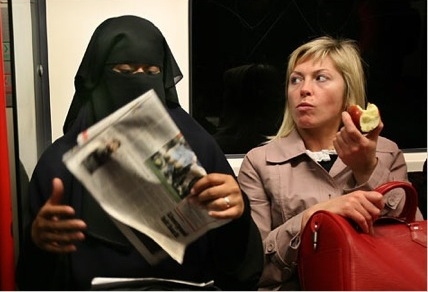Whether looking for a job, buying something from a shop or visiting the doctor, minorities in Europe commonly face discrimination, the EU's Fundamental Rights Agency has said.
Using language rarely found in the dry reports of EU agencies, the FRA described as "shocking" the rampantly racist, anti-immigrant and Islamophobic experiences of minorities as they go about their daily lives.
The agency's first-ever report, published on Wednesday (8 December), attempts to map the contours of discrimination across the bloc in a comprehensive, 276-page survey of over 23,000 individuals. It reveals that over a fifth (22 percent) of sub-Saharan Africans have been discriminated against at least once in the last year while looking for work, 17 percent of Roma say they have experienced similar incidents while being seen by a doctor or nurse and 11 percent of North Africans are subjected to racism when in or simply trying to enter a shop.
The original continent of emigration is now one of the world's most popular destinations for immigration and in many countries amongst some sections of the native population, this change is unwelcome. As the economic crisis bites, discrimination is expected to intensify as people and political organisations look for outsiders to blame for the problem.
But the precise extent of racism and other forms of ethnic discrimination are often unknown, particularly in government data - no similar official effort had previously been mounted on an EU-wide basis.
Rather than simply asking who felt discriminated against, the survey used a stringent metric of exploring discrimination in nine different areas of everyday life: when looking for work or at work, when looking for a house or apartment to rent or buy, by healthcare and social services, by schools, at a café, restaurant, bar or nightclub and at shops, as well as discrimination when trying to open a bank account or obtain a loan.
The survey found that while minorities are commonly accused of criminal activity, they are in fact frequently the victims of crimes themselves: Roughly a quarter (24 percent) had been the object of a crime at least once in the last 12 months.
Unreported malice
However, lacking trust in the police, a full 82 percent of the individuals who said they had had a recent experience of discrimination in the past year did not report the incident, usually because they thought "nothing would happen" or "it happens all the time."
"This lack of reporting indicates that official figures on racist discrimination constitute just the 'tip of the iceberg'," the report said.
Some communities view the police themselves as a source of the problem. Among all North Africans who were surveyed, 1 in 5 (19 percent) considered that they had been stopped by the police specifically because of their ethnicity.
In a breakdown of the groups most discriminated against, the agency found that far and away, the most persecuted community was the Roma living in the Czech Republic, some 64 percent of whom said they had such experiences. Gypsies living in Hungary (62%), Poland (59%) and Greece (55%) were also high on the "top 10" most targetted groups.
Africans, both from the Maghreb and south of the Sahara also made it into the top of the chart, with 63 percent of all Africans in Malta, 54 percent of sub-Saharan Africans in Ireland, 52 percent of north Africans in Italy, and 47 and 46 percent of Somalis in Finland and Denmark respectively reporting incidents.
In one exception to the triptych of Roma, African immigrants and Muslims that repeatedly featured in the report, Brazilians living in Portugal also reported high levels of anti-immigrant sentiment (44 percent).
Discrimination of Muslims
One in three Muslim respondents were discriminated against in the past 12 months, most commonly when looking for work, in bars, restaurants and shops, and while trying to find an apartment or house.
Muslims aged 16-24 experience more discrimination in comparison with other age groups, with overall discrimination rates declining with age. However, this changes amongst muslim youth who are citizens of the country they are living in: 29 percent of youths aged 16-24 who are citizens in contrast to 48% of youths who are not.
Other groups found to be the subject of prejudice were migrants from within the EU itself, notably those from central and eastern Europe and the Balkans who live in the western member states, as well as Russians and Turks.



